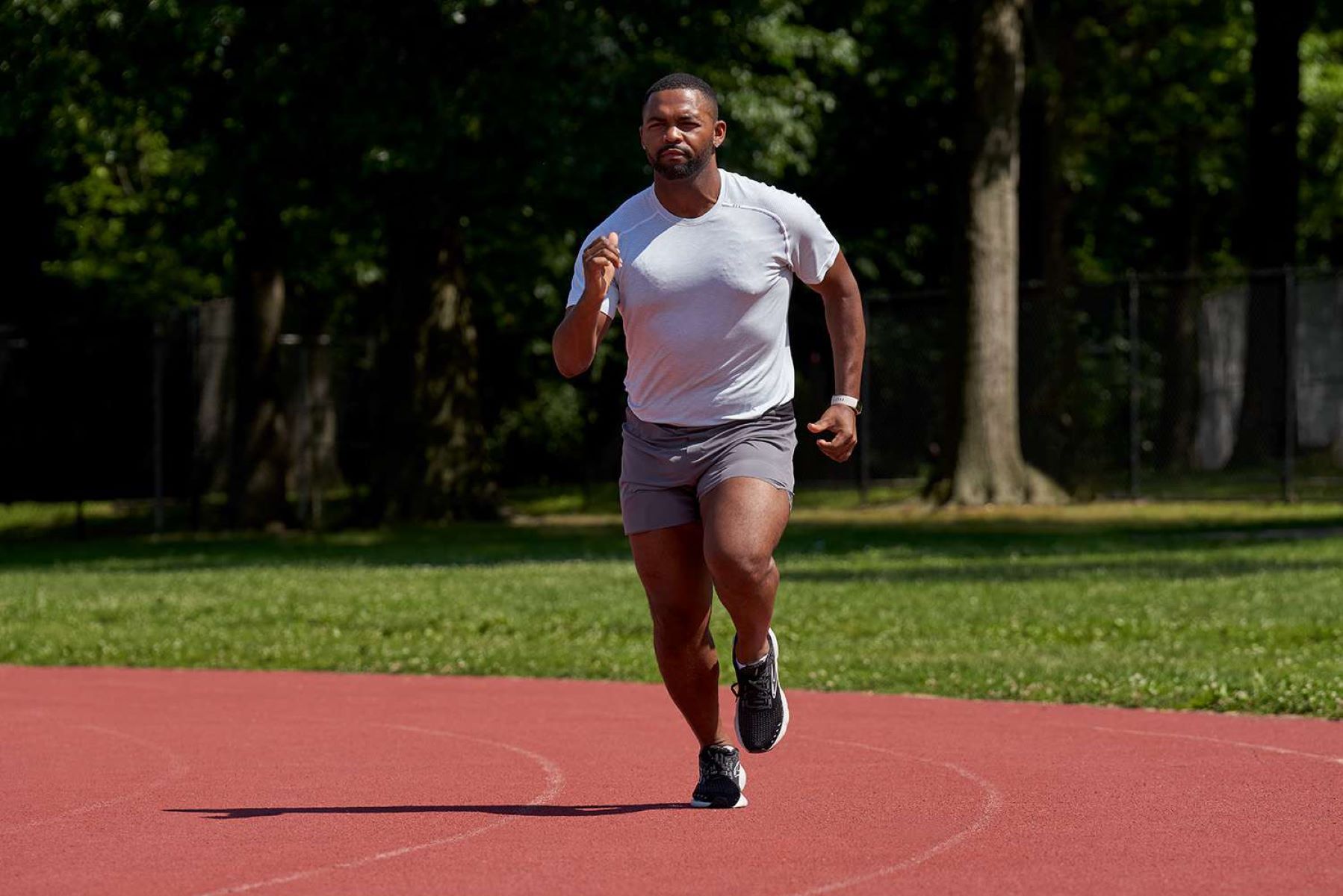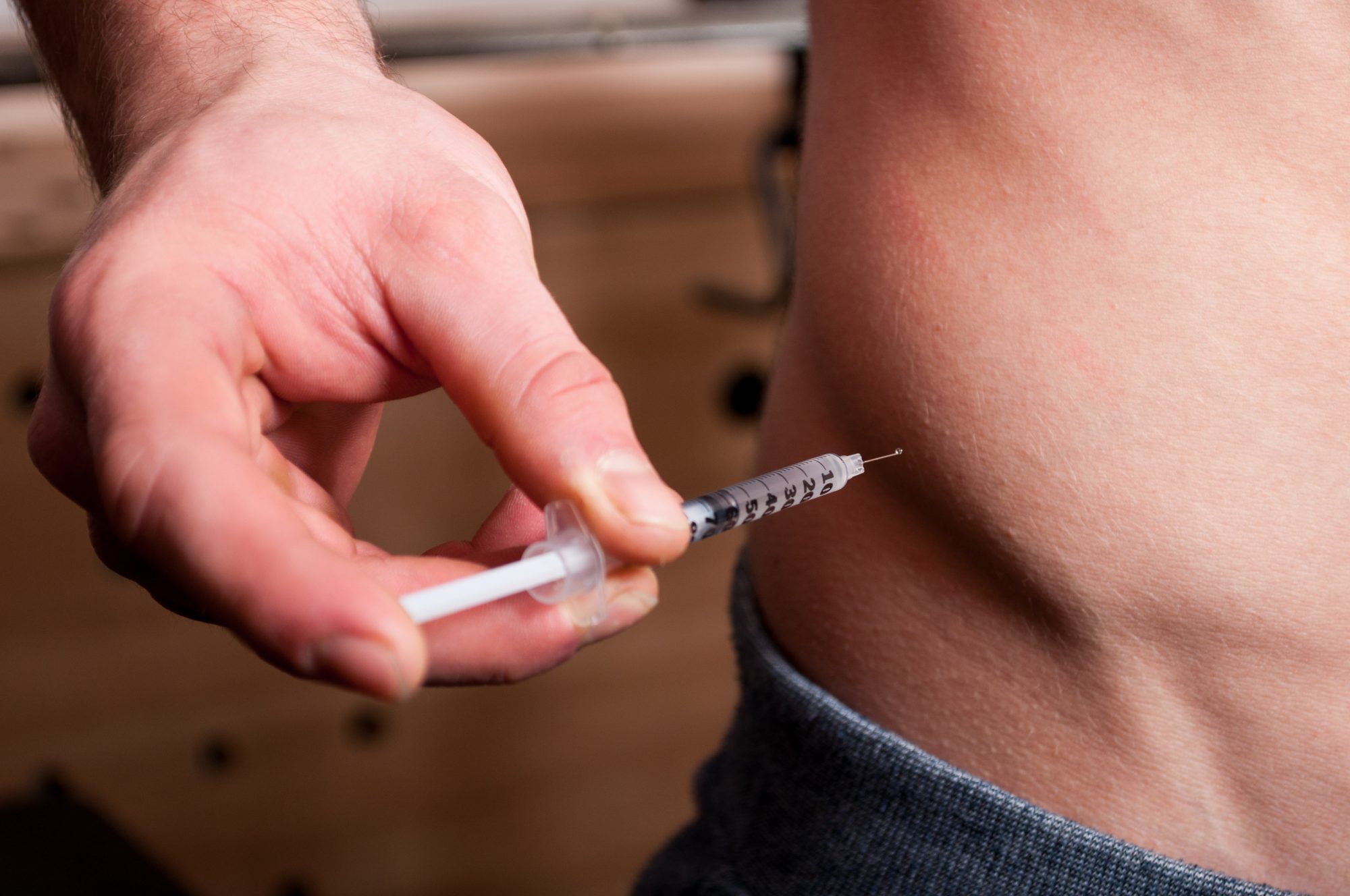Home>Misc>Featured>How Does Testosterone Help Athletic Performance


Featured
How Does Testosterone Help Athletic Performance
Modified: August 21, 2023
Discover how testosterone, a featured hormone, enhances athletic performance and boosts muscle gain, improving endurance and overall physical fitness. Unveil the benefits today!
Introduction
Athletic performance is a complex interplay of various factors, from training methods and nutrition to genetics and mental resilience. Among these factors, the role of testosterone cannot be overlooked. Testosterone, a hormone primarily found in males, plays a crucial role in the development of muscle mass, strength, and overall physical performance. It is the key hormone responsible for the characteristics typically associated with masculinity, such as deep voice, facial and body hair, and increased muscle mass.
In recent years, there has been growing interest and debate about the use of testosterone in the world of athletics. The potential benefits it offers in terms of enhancing athletic performance have made it a topic of great interest among athletes, coaches, and researchers.
Before delving into how testosterone helps with athletic performance, it is important to understand what testosterone is and how it functions in the body.
Testosterone is a hormone produced primarily in the testicles in males and in the ovaries and adrenal glands in females, although in much smaller quantities. It belongs to a class of hormones known as androgens. In males, testosterone levels are significantly higher, contributing to the development of male sexual characteristics and the growth and maintenance of muscle mass.
Testosterone plays a crucial role in protein synthesis, which is the process by which the body builds and repairs muscle tissue. It stimulates the growth and development of new muscle fibers, allowing for increased muscle size and strength.
In addition to its role in muscle development, testosterone also affects other aspects of athletic performance, such as stamina, speed, endurance, and recovery. Understanding these effects is essential for athletes seeking to optimize their performance and reach their full potential.
In this article, we will explore in detail how testosterone assists in athletic performance, the factors that can affect testosterone levels in athletes, and strategies that can be employed to enhance testosterone levels naturally. By understanding the science behind testosterone and its impact on athletic performance, athletes can make informed decisions about their training and optimize their performance on the field or court.
Understanding Testosterone
Testosterone is a hormone that plays a vital role in the development and maintenance of male sexual characteristics and overall physical health. It is produced in the testicles in males and in smaller quantities in the ovaries and adrenal glands in females.
Testosterone belongs to a class of hormones known as androgens, which are responsible for the development of male secondary sexual characteristics. These characteristics include a deeper voice, facial hair, increased muscle mass, and higher levels of aggression and competitiveness.
Testosterone production begins during puberty and continues throughout adulthood, with peak levels occurring in early adulthood. However, testosterone levels can decrease with age, leading to various physical and psychological changes.
In addition to its role in sexual development, testosterone also plays a crucial role in muscle development, bone density, red blood cell production, and overall physical performance. It acts as a potent anabolic hormone, stimulating protein synthesis and muscle growth. This is why testosterone is often associated with increased muscle mass and strength.
When testosterone binds to specific receptors in muscle cells, it activates genes that promote protein synthesis, leading to muscle growth and repair. Higher testosterone levels result in increased muscle protein synthesis, creating an environment conducive to muscle hypertrophy.
Testosterone also impacts the body’s metabolism, potentially leading to lower body fat levels. This hormone has a thermogenic effect, increasing calorie expenditure and promoting leaner body composition.
Beyond its effects on physical characteristics and muscle development, testosterone also influences mood, cognitive function, and overall well-being. It is associated with increased energy levels, improved motivation, and a sense of well-being.
It is important to note that while testosterone is more commonly associated with males, it also plays a significant role in female physiology. Women naturally have lower testosterone levels than men, but adequate levels are still necessary for optimal health, vitality, and athletic performance.
In the next sections, we will explore the specific ways in which testosterone contributes to athletic performance, including its effects on muscle development, stamina, speed, endurance, and recovery. Understanding these mechanisms will shed light on how athletes can optimize their testosterone levels and ultimately enhance their performance on the field.
The Role of Testosterone in Muscle Development
One of the key roles of testosterone in athletic performance is its impact on muscle development. Testosterone promotes muscle growth through a process called protein synthesis. This process involves the creation of new muscle tissue and the repair of damaged muscle fibers.
When testosterone levels are high, it binds to androgen receptors in muscle cells, triggering a series of cellular events that lead to an increase in protein synthesis. Protein synthesis is essential for building and repairing muscle tissue. It involves the translation of genetic information into the production of specific proteins that are crucial for muscle growth and maintenance.
Higher testosterone levels in the body result in increased muscle protein synthesis, leading to greater muscle hypertrophy. This means that athletes with higher testosterone levels have the potential to develop larger and stronger muscles compared to those with lower testosterone levels.
In addition to promoting protein synthesis, testosterone also plays a role in inhibiting muscle breakdown. It reduces the activity of muscle protein degradation pathways, preventing the breakdown of muscle tissue and promoting overall muscle preservation.
Another important aspect of testosterone’s role in muscle development is its ability to increase the number of satellite cells in muscle tissue. Satellite cells are muscle precursor cells that play a crucial role in muscle repair and regeneration. Testosterone stimulates the proliferation of satellite cells, allowing for a more efficient muscle repair process and facilitating muscle growth.
It is important to note that while testosterone is a key factor in muscle development, it is not the sole determinant. Other factors, such as genetics, training methods, nutrition, and overall hormone balance, also play a significant role in muscle development and athletic performance.
To optimize muscle development, athletes must focus on a comprehensive approach that includes resistance training, proper nutrition, and a healthy hormone balance. While testosterone can provide a significant advantage, it is important to approach its optimization in a safe and ethical manner, in accordance with the rules and regulations of sports governing bodies.
In the next sections, we will explore how testosterone influences other aspects of athletic performance, such as stamina, speed, endurance, and recovery. By understanding the impact of testosterone on these areas, athletes can gain insights into how to maximize their performance potential.
Testosterone and Stamina
Stamina, also known as endurance, is a critical factor in athletic performance, particularly in endurance-based sports such as long-distance running, cycling, and swimming. Stamina refers to the ability to sustain prolonged physical activity by efficiently utilizing energy sources and delaying the onset of fatigue.
Testosterone plays a significant role in stamina by enhancing oxygen utilization and muscle energy metabolism. It increases the production of red blood cells, which are responsible for transporting oxygen from the lungs to the muscles. Higher levels of red blood cells mean greater oxygen-carrying capacity and improved oxygen delivery to working muscles.
Oxygen is essential for energy production during aerobic activities. When oxygen supply is optimized, athletes can maintain a higher level of energy production for a longer duration, allowing them to sustain intense physical activity without becoming fatigued too quickly. This translates into improved stamina and endurance performance.
In addition to the effect on oxygen utilization, testosterone also enhances muscle energy metabolism. It increases the synthesis of adenosine triphosphate (ATP), which is the primary energy source for muscle contractions. Higher ATP synthesis means greater energy availability for muscular work, improving overall stamina and allowing athletes to perform at a higher intensity for longer periods.
Testosterone also influences the regulation of muscle glycogen, which is the storage form of glucose in muscle cells. It has been found that testosterone helps maintain muscle glycogen stores during prolonged endurance exercise, delaying the depletion of this important fuel source. This further contributes to improved stamina by providing the muscles with a sustained energy supply.
Furthermore, testosterone has been linked to increased motivation and mental resilience, both of which are vital for endurance performance. The hormone has been shown to enhance focus, drive, and competitive spirit, helping athletes push through mental barriers and maintain their effort levels during challenging situations.
While testosterone undoubtedly plays a role in stamina, it is important to note that overall training, nutrition, and recovery strategies also greatly influence an athlete’s endurance capacity. A well-rounded approach that includes aerobic training, proper fueling, and adequate rest is essential for optimizing stamina and endurance performance.
In the next sections, we will explore how testosterone impacts speed, endurance, and recovery, providing athletes with valuable insights into how they can enhance these aspects of their performance.
Testosterone and Speed
Speed is a crucial component of many athletic activities, whether it be sprinting on the track, cycling, or even team sports like soccer and basketball. Testosterone plays a significant role in speed by enhancing various physiological factors that contribute to faster movement.
One key way testosterone influences speed is by increasing muscle strength and power. Testosterone promotes the development of lean muscle mass and enhances muscle fiber size, particularly fast-twitch muscle fibers. These fibers are responsible for generating explosive force and power during activities requiring speed and quick movements.
Higher testosterone levels result in increased muscle protein synthesis, allowing for greater muscle hypertrophy and stronger muscle contractions. This leads to improved force production, which translates into faster acceleration and top-speed performance. Athletes with higher testosterone levels may have an advantage in terms of explosive power and speed compared to those with lower testosterone levels.
Testosterone also plays a role in enhancing neuromuscular coordination. It affects the nervous system’s ability to recruit and synchronize motor units, which are groups of muscle fibers controlled by a single nerve. A higher level of testosterone can optimize these neural pathways, resulting in more efficient movement patterns and better coordination. This can lead to improved running mechanics, more efficient stride lengths, and ultimately, faster speed.
In addition to its impact on muscle strength and coordination, testosterone also influences the body’s metabolism. It increases the basal metabolic rate, which is the rate at which the body burns calories at rest. A higher metabolic rate can result in increased energy availability during high-intensity activities, allowing athletes to generate and sustain faster speeds.
Furthermore, testosterone has been found to enhance the production of growth hormone, another hormone involved in speed and sprint performance. Growth hormone stimulates the release of insulin-like growth factor 1 (IGF-1), which promotes tissue growth and repair. This can contribute to improved muscle recovery and enhanced speed.
While testosterone can play a significant role in speed, it is important to note that other factors, such as technique, agility, and reaction time, also come into play. A well-rounded training program that includes speed-specific drills, plyometrics, and proper sprinting technique is essential for maximizing speed and overall athletic performance.
In the next section, we will explore how testosterone influences endurance and recovery, providing athletes with valuable insights into how they can enhance these aspects of their performance.
Testosterone and Endurance
Endurance is a crucial aspect of athletic performance, particularly in sports that require prolonged physical exertion, such as distance running, cycling, and swimming. Testosterone plays a role in endurance performance by influencing various physiological factors that contribute to improved endurance capacity.
One way testosterone influences endurance is by enhancing the body’s utilization of fats as an energy source. Endurance activities rely heavily on the utilization of stored fats for fuel, particularly during longer-duration exercises. Testosterone stimulates the breakdown of fat stores and promotes fatty acid oxidation, allowing athletes to sustain a steady supply of energy for endurance activities.
Furthermore, testosterone has been shown to improve oxygen uptake and utilization. It enhances the production of red blood cells, responsible for transporting oxygen to the working muscles. With higher levels of red blood cells, athletes can increase their oxygen-carrying capacity, allowing for improved oxygen delivery to the muscles during endurance exercise. This, in turn, enhances energy production and delays the onset of fatigue, allowing athletes to perform at a higher intensity for longer durations.
Testosterone also affects the cardiovascular system, particularly the dilation of blood vessels. High testosterone levels have been associated with increased vasodilation, which improves blood flow to the muscles during exercise. Improved blood flow means better delivery of oxygen and nutrients to the working muscles, contributing to improved endurance performance.
Additionally, testosterone has been found to enhance mitochondrial function. Mitochondria are the powerhouses of cells responsible for energy production. Testosterone increases the number and efficiency of mitochondria within muscle cells, allowing for greater energy production and better endurance capacity.
Furthermore, testosterone is thought to play a role in mental resilience, which is crucial for endurance performance. It has been linked to increased motivation, focus, and mental drive, enabling athletes to push through challenging moments during endurance activities. This mental resilience can be a key factor in maintaining intensity and effort level throughout a lengthy endurance event.
While testosterone can influence endurance performance, it is important to note that other factors, such as training volume, nutrition, and overall fitness level, also play significant roles. A well-rounded training program that includes aerobic exercises, interval training, and proper fueling strategies is essential for optimizing endurance and overall athletic performance.
In the next section, we will explore how testosterone impacts recovery, an essential component of athletic performance that allows athletes to adapt, grow, and improve.
Testosterone and Recovery
Recovery is a critical aspect of athletic performance, as it allows the body to repair, rebuild, and adapt following intense physical activity. Testosterone plays a role in the recovery process by influencing various physiological factors that contribute to efficient recovery.
One way testosterone influences recovery is through its impact on protein synthesis. Testosterone stimulates the synthesis of new muscle proteins, which is essential for muscle repair and growth. It accelerates the rate of muscle tissue repair, allowing athletes to recover faster from training sessions or competitions. This is particularly important for athletes who engage in high-intensity or resistance training, as these activities can cause muscle damage that needs to be repaired for optimal recovery and subsequent performance.
Additionally, testosterone promotes the release of growth hormone, another hormone involved in the recovery process. Growth hormone is responsible for tissue repair, cellular regeneration, and the promotion of anabolism in the body. This hormone aids in the healing of damaged tissues, helps replenish energy stores, and supports the immune system, all of which are crucial for effective recovery.
Furthermore, testosterone has been found to have anti-inflammatory properties. It can help reduce inflammation and swelling in tissues, allowing for faster recovery and minimizing the risk of delayed onset muscle soreness (DOMS). Reduced inflammation also promotes a more favorable environment for muscle repair and growth.
In addition to its physiological effects, testosterone also plays a role in mental recovery. It has been linked to improved mood, reduced stress, and enhanced overall well-being. Mental recovery is an important aspect of the overall recovery process, as it allows athletes to rest and recharge both physically and mentally, enabling them to perform at their best in subsequent training sessions or competitions.
While testosterone can contribute to the recovery process, it is essential to note that other factors, such as proper nutrition, sleep, and active recovery strategies, also play significant roles. Adequate rest, a balanced diet rich in macronutrients and micronutrients, and techniques such as stretching, foam rolling, and light activity can all aid in optimizing recovery and promoting overall athletic performance.
In the next section, we will explore several factors that can affect testosterone levels in athletes, providing insights into how athletes can maintain optimal testosterone levels for improved performance.
Factors Affecting Testosterone Levels in Athletes
Testosterone levels in athletes can be influenced by various factors, both internal and external. Understanding these factors is crucial for optimizing testosterone levels and ultimately maximizing athletic performance. Here are some key factors that can affect testosterone levels in athletes:
1. Training Intensity and Volume: The intensity and volume of training can have a significant impact on testosterone levels. High-intensity and high-volume training sessions can temporarily decrease testosterone levels, while moderate-intensity and well-structured training programs can help maintain or even elevate testosterone levels. It is important to strike a balance between training stimulus and recovery to optimize testosterone levels.
2. Sleep and Rest: Sufficient sleep and rest are essential for maintaining optimal testosterone levels. Lack of sleep or poor quality sleep can negatively impact testosterone production. Aim for 7-9 hours of uninterrupted sleep each night to support healthy testosterone levels.
3. Nutrition and Hydration: Proper nutrition and hydration play a crucial role in testosterone production. A diet rich in essential nutrients, including healthy fats, proteins, and micronutrients, supports optimal hormone production. Adequate hydration is also essential for overall hormonal balance.
4. Body Composition: Body fat levels can affect testosterone levels. Higher levels of body fat are associated with lower testosterone levels, while a leaner body composition can support higher testosterone production. Maintaining a healthy and balanced body composition through proper nutrition and exercise can help optimize testosterone levels.
5. Stress Levels: Chronic stress can negatively impact testosterone production. High-stress levels can lead to increased cortisol levels, which can suppress testosterone production. Implementing stress reduction techniques, such as mindfulness practices, relaxation exercises, and adequate recovery, can help maintain healthy testosterone levels.
6. Age: Testosterone levels naturally decline with age. As athletes get older, it becomes essential to monitor and manage testosterone levels to support optimal performance. Age-related testosterone decline can be managed through lifestyle strategies, including regular exercise, a balanced diet, and stress reduction techniques.
7. External Factors: Certain external factors, such as exposure to environmental pollutants or certain medications, can affect testosterone levels. It is important for athletes to be aware of these factors and take appropriate measures to minimize their impact on testosterone production.
It is important to note that individual variations and genetic factors also play a role in testosterone levels. Each athlete may respond differently to the various factors mentioned above. Monitoring testosterone levels through regular blood tests and working with healthcare professionals can help athletes understand their unique hormonal profile and develop strategies to optimize testosterone levels.
In the next section, we will explore various strategies that athletes can employ to naturally enhance testosterone levels and improve athletic performance.
Testosterone Enhancing Strategies in Athletes
Athletes are constantly seeking ways to optimize their performance, and naturally enhancing testosterone levels can be a valuable tool in this pursuit. While synthetic testosterone use is prohibited in most sports due to its performance-enhancing effects, there are several natural strategies athletes can employ to support healthy testosterone levels. Here are some testosterone enhancing strategies for athletes:
1. Resistance Training: Engaging in regular resistance training, such as weightlifting, has been shown to increase testosterone levels. Focus on compound exercises like squats, deadlifts, and bench presses, which involve multiple muscle groups and stimulate a greater testosterone response. Aim for challenging but manageable weights and include both upper and lower body exercises in your training program.
2. High-Intensity Interval Training (HIIT): Incorporating high-intensity interval training can also help boost testosterone levels. HIIT involves short bursts of intense exercise followed by brief recovery periods. These intense bursts of exercise stimulate an acute increase in testosterone production. Examples of HIIT workouts include sprint intervals, cycling sprints, or plyometric exercises.
3. Adequate Nutrition: Maintain a balanced diet that includes essential nutrients for testosterone production. Include foods rich in healthy fats, such as avocados, nuts, and olive oil. Protein is also crucial for testosterone synthesis, so consume lean sources of protein like chicken, fish, and Greek yogurt. Additionally, ensure you’re getting enough vitamins and minerals, particularly zinc, vitamin D, and magnesium, which are essential for healthy testosterone levels.
4. Optimize Sleep: Adequate sleep is crucial for optimal testosterone levels. Aim for 7-9 hours of uninterrupted sleep each night. Establish a consistent sleep routine and create a sleep-friendly environment that is cool, dark, and quiet. Avoid electronic devices before bed and implement relaxation techniques, such as deep breathing or meditation, to promote quality sleep.
5. Manage Stress: Chronic stress can negatively impact testosterone levels. Implement stress management techniques such as mindfulness, yoga, or engaging in hobbies and activities that promote relaxation. Find ways to balance the demands of training and everyday life to minimize stress and support healthy hormone levels.
6. Maintain a Healthy Body Weight: Excess body fat can contribute to lower testosterone levels. Maintain a healthy body weight through a balanced diet and regular exercise. Strive for a body composition that includes sufficient muscle mass and minimal excess fat, as this can help optimize testosterone levels.
7. Limit Alcohol Consumption: Excessive alcohol intake can suppress testosterone production. Limit alcohol consumption and focus on hydration with water or other non-alcoholic beverages to support healthy testosterone levels.
It is essential to note that these strategies should be personalized and implemented in consultation with healthcare professionals or certified coaches who specialize in sports nutrition and performance. They can provide individualized guidance based on your specific needs, goals, and training regimen.
By incorporating these natural testosterone enhancing strategies into your training and lifestyle, you can support healthy testosterone levels and optimize your performance potential in a safe and ethical manner.
In the final section, we will summarize the main points discussed in this article and highlight the importance of understanding testosterone’s role in athletic performance.
Conclusion
Testosterone plays a significant role in athletic performance, particularly in areas such as muscle development, stamina, speed, endurance, and recovery. Understanding the impact of testosterone on these aspects can provide valuable insights for athletes looking to optimize their performance.
Testosterone enhances muscle development by promoting protein synthesis and inhibiting muscle breakdown. It contributes to improved stamina by increasing oxygen utilization, muscle energy metabolism, and glycogen preservation. Testosterone also influences speed by enhancing muscle strength and power, neuromuscular coordination, and metabolism. In terms of endurance, testosterone improves oxygen uptake, fat utilization, cardiovascular function, and mental resilience. Furthermore, testosterone supports the recovery process through enhanced protein synthesis, release of growth hormone, anti-inflammatory effects, and mental well-being.
However, testosterone levels can be influenced by various factors such as training intensity, sleep, nutrition, stress, body composition, age, and external factors. By managing these factors effectively, athletes can maintain optimal testosterone levels for improved performance.
Natural testosterone enhancing strategies include resistance training, high-intensity interval training, adequate nutrition, optimal sleep, stress management, maintaining a healthy body weight, and limiting alcohol consumption. These strategies can support healthy testosterone levels and contribute to enhancing athletic performance.
It is important to note that the optimization of testosterone should be approached in a safe and ethical manner, in accordance with the rules and regulations of sports governing bodies. Athletes should consult with healthcare professionals or certified coaches who specialize in sports nutrition and performance to develop individualized strategies.
By understanding the role of testosterone in athletic performance and implementing appropriate strategies, athletes can unlock their full potential and achieve their performance goals. It is through this comprehensive understanding and application that athletes can strive for greatness in their chosen sports.









